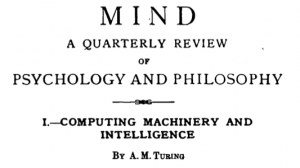
Al and I sprawled in the cockpit of “Golly Gee,” our chartered Landfall 43. We were both exhausted.
“This boat is a mess,” I said.
“Real pig sty,” Al commented unenthusiastically.
It was clear we had reached a low point in our vacation. Our energy was drained from the long day it had taken us to sail the 55 or so miles from the French island of Guadeloupe to the British island of Antigua. Also, we had made the serious mistake of skipping lunch since no one felt salty enough to go below while sailing hard on the wind. Furthermore, I had not adequately compensated for leeway and we reached our land fall about two miles down wind. Motoring directly into the big seas for the last two miles didn’t help matters any. Add to this, an anchoring drill worthy of real landlubbers, and it becomes obvious why our spirits were so low.
The smell of hot soup drifted into the cockpit from below. I suddenly realized just how hungry I was. When my wife, Terry, called, “it’s ready,” we moved without hesitation toward the galley. About halfway through the meal I silently promised myself that tomorrow we were not going to skip lunch, even if we had to pack lunch in the morning before getting underway.
After supper, and a short rest below, I returned to the cockpit and looked around picturesque English Harbor at sunset. There was no wind now and yachts anchored around us sat motionless on the glass-like water. Lights were beginning to flicker on and send shimmering reflections across th surface. I could feel my spirits and energy level returning. Our yacht still needed to be squared away, so I set about the task; cover the compass, coil the sheets and halyards, stow the life jackets, rig chafing gear to the anchor line. Al came topside with the sail cover in his arms and, without speaking, we began to wrestle the stiff cloth over the main sail. As we worked in silence, my thoughts drifted back to the events of the day.
Actually, we had made the long sail in excellent ime. Sailing with reefed main and storm jib, we still managed a speed of eight knots in the stiff wind, which I estimated to be about twenty five knots with higher gusts. I wished I had taken the time to gauge the wind accurately with the “windicator” I had brought along, but at the time, the huge waves demanded constant attention at the helm. Even though the yacht performed well in those conditions, the apprehension expressed by Terry seemed to be contagious and soon had everyone nervous. In retrospect, it seemed to me that sailing for hours with that uneasy feeling caused more fatigue than the physical work involved. Tomorrow would be another long day of sailing since our charter was nearly over, and we were still a long way from Parham Harbor, where we started. The many reefs along our path would require careful… no, meticulous navigation. Most everyone enjoys coastal cruising with gorgeous tropical scenery but, I worry more about reefs than big waves.
The next day dawned bright and sunny with puffy cumulus clouds moving high over head. Most of the harbor was quiet and still, except for one dinghy motoring slowly toward shore; its wake sending endless ripples across the otherwise undisturbed water. On shore, the restored government buildings created the illusion that we had somehow traveled backward through time to an era of greater simplicity. I could almost see square-rigged sailing ships against the city dock. The trials and tribulations of the previous day seemed insignificant now, and well worth enduring, in light of this spectacular tropical splendor.
We went ashore early with all our documents to find the customs officer. We located him near the docks, but he told us we were to wait on our yacht, and he would come out to board and check us through. So we all did an about-face and returned to the dinghy to ride back. In a short time, the customers officer did come alongside in his boat. After exchanging cordial greetings we went below and began the paper work. We showed him our ship’s papers, passports, and cruising permit while filling out several forms. He was very official in appearance and manor, but his big smile and friendly attitude made us all feel at ease.
“Sign here, keep this copy, and give this to the immigration officer.”
“The immigration officer? Where do I find him?” I asked.
“In the police station. The yellow building beyond Nelson’s Dock Yard,” was the answer.
We exchanged cordial farewells, shoved off the customs boat, and began to collect our passports and other papers in preparation for going ashore again. We boarded the dinghy, started the outboard, and set off once more for the city dock. Al drove the dinghy a little faster this trip. Perhaps his thoughts were on the many sea miles we still had to cover before the day’s end. Mine were. With the dinghy secured, our landing party began walking through the dockyard in the direction of the police station. Some natives were setting up there stands at the local flea market. Though it was still early, it was hot, so when the girls stopped to look through some dresses and tee shirts, I bought an almost cold soft drink from a vendor with a cooler. As I sat in the shade, Al took some pictures of our yacht anchored across the harbor. The girls returned with packages, and immediately began to compare their latest shell jewelry and tee shirts. Having finished all this, we were at last ready to move on, except that Al’s wife, Brenda, had to stop and take some pictures of our yacht anchored across the harbor. Parham Harbor sure wasn’t getting any closer.
The police station finally came into sight. We walked into the main room which contained one front counter and nothing else. There was no one in sight. We stood around talking louder than necessary for a few minutes and even faked a loud cough or two hoping to attract someone’s attention. At last a slender fellow in street clothes shuffled into the room and noticed us with some surprise.
“May I help you?”
“Yes,” I responded. “We would like to see the immigration officer.”
Without saying a word the man walked slowly out of the room and was gone for some time. When he did come back, he handed us a form and began to leave the room.
“We already have this form,” I said, showing him the filled-out papers the customer officer had given us. He looked briefly at the papers and left the room again. Be patient I told myself, knowing from experience there was no way to speed up this process. The man returned, this time with another man wearing a uniform-type coat with regular street pants and no shoes. This must be the immigration officer, I thought. I explained once again that the customs officer had given us these forms after which both men left the room. When they returned, the man in the uniform coat asked to see our immigration declaration. After a lengthy conversation, we ascertained that the paper in question had been given to us at the airport upon our arrival two weeks earlier. The man insisted he could not make up new copies even though there was only basic information such as our names, addresses and occupations on the form. Worst of all was the realization that this all-important paper was aboard Golly Gee in the folder containing our airline tickets! So… we all did another about-face to fetch same.
After walking a short distance, the girls volunteered to make the trip back to the yacht since it was not necessary for all of us to go, and Brenda wanted to drive the dinghy. I sat down in the shade with Al to wait. From this vantage point we could see Terry and Brenda heading across the harbor and returning some time later. We could also see them stopping in the flea market one more time. At last they returned, papers in hand.
Back in the police station, we handed the papers to the immigration officer which he took and left the room. When he returned, he was holding a book of receipts. He filled out several lines on each sheet, then his assistant entered the room carrying a rubber stamp and ink pad. The new papers were all filled out in triplicate, separated, and spread on the counter in preparation for the official stamp. Now we are really getting somewhere, I thought. The assistant laid the broken and dried up ink pad on the counter, raised the rubber stamp high above his head, and slammed it down on the ink pad with a resounding BOOM! Each paper was stamped individually in the same manner. BOOM! …BOOM! …BOOM! Now all that remained was to give us our copies. But wait, there was yet another mix up! The papers had been torn out of their book in the wrong sequence and the receipt numbers did not match the originals. The officer and his assistant were now involved in a four-handed paper shuffling drill that included tearing, arrangement, stapling, and re-arrangement, and lasted at least five minutes. Their antics were so comical, that an involuntary smile began building in my cheeks. I looked at Terry in disbelief. Her eyes looked toward the ceiling. Is this for real? Maybe we’re on Candid Camera!
“Sign here, keep this copy, and give this to the port authority officer.”
“The port authority? Where do I find him?” I asked.
“There,” was the answer as he pointed across the way toward Nelson’s Dock Yard.
At the port authority office we were greeted by a well-dressed young man who set about his paper work without speaking. Upon completion, he asked many questions about where we had sailed and how long we had stayed at his place or that. I answered accurately. Then he produced another form and asked for a large sum of money; I can’t recall the exact amount.
“What’s this for?” I asked trying to sound polite.
“Cruising permit,” was the answer.
“But I already have one.” I said, again trying to sound polite. I showed him the document given to me by the charter company. It was a pre-paid, one-year, cruising permit.
“You should have showed this to me before,” he said.
I would have, I thought to myself, if you had asked me or indicated what you were doing. He examined the paper carefully, Including the reverse side (which was blank) several times, and then sat down and began crossing out and writing over most of what he had filled in. Having completed the rewrite, he returned to the counter and asked for a smaller amount of money. We were charged for harbor dues, port of entry charge, and landing fee per person. The entire amount came to about eighteen dollars [USD]. I had neither the time nor the will to argue so I paid the tariff. The man collected my cash then sat down and began writing again.
“Is that it?” I asked after waiting a while. He nodded; we left.
Straight-away we heeded for Golly Gee and made immediate preparations for getting under way. The sun was already high in the sky as Al and I hauled in the anchor. Brenda handled the helm and throttle according to my directions. Everything went smoothly.
“This anchor gets heavier every time we go through this!” we both agreed.
“It is heavier this time!” I said looking over the side.
There was at least twenty pounds of black mud clinging to the anchor and chain. Buckets of sea water and lots of scrubbing only served to spread the gooey stuff. We ended up scrubbing the entire deck before we were through. As we motored seaward, we all took one last look around with that sad feeling in our hearts that accompanies leaving.
Sails were hoisted before we cleared the old fort. It was a fabulous day with a fair breeze from the right direction. Pulling the diesel kill lever worked its regular magic as noise and vibration ceased, and our sleek craft joined in the rhythm of the sea. Knowing there were no hazards to navigation in this area, my mind soon realized it had nothing in particular on which to concentrate. I relaxed in the cockpit while soaking in the pristine environment and warm Caribbean sun with all my sense. Cloud shadows slid silently across the majestic green mountain peaks of Antigua’s western shore. Thick palm groves lined the coast. Soon my exhilaration turned to elation in a way that words or picture cannot describe! I wondered how I had allowed myself to become hassled earlier. It all seemed so petty now.
The next several hours were spent with charts in one hand and binoculars in the other. Antigua has an abundance of nasty things to bump into off shore; all very harmless actually. All you have to do is avoid them! The wind began to fail as we sailed in the lee of the island. Some chart work and math gave me the unwanted answer I expected. We would have to maintain a speed of at least four knots to reach our intended anchorage at a reasonable time of day. This meant starting the diesel whenever our boat speed dropped. Soon it was necessary to take down the sails and run the engine constantly. The miles slipped by and it was late in the day when we finally reached the buoy marking the entrance to Parham Harbor. Once inside, we motored toward the small islands on the eastern perimeter of the harbor. It was our plan to anchor there for the night. This would allow us plenty of time to make the short ride to the charter company’s dock in the morning. After securing the yacht and checking the anchor, we made a hasty departure for some last minute snorkeling and a dinghy ride ashore to watch the sunset.
There was plenty to see ashore even though Bird Island is tiny and uninhabited. It’s cozy cove led to a small beach with a low grassy area beyond. About a hundred yards distant was the other side of he island and another sandy beach. To the right, a steep hill seemed to be calling, “come and see what is on the other side,” and of course we did. The summit revelaed a sheer cliff dropping straigh to the sea with the vast, open ocean beyond. Behind us, Golly Gee lay peacefully awaiting our return while the sun disappeared behind Antigua.
The sun was also setting on our vacation. By comparison, this charter had really gone smoothly. We had visited Antigua, Guadelope, Isles de Saintes and Dominica, and covered approximately 220 nautical miles. We encountered only minor problems which must be expected with a trip of this complexity. Sailing vacations can be more work than relaxation, especially on a bareboat charter. But this is not something I have only recently discovered. However, never before had we tried to cover so many islands and so many miles. I didn’t regret for a moment sailing as far as luscious Dominica, a mountainous, green-clad country of running waters and forests of mahogany, cedar and bamboo; the most unspoiled island I’ve seen. Although the schedule we had to maintain to get it all in, could have ruined our vacation. Yes… that was the problem… the schedule. Having to be there on time can take the fun out of getting there. Dealing with the natives can be exasperating if you are in a hurry. I may have been fooling myself by thinking, “I’m not in harry,” but my true thoughts were on the many sea miles left to cover in the time remaining. Also, jumping from island to island in an international area can necessitate checking in and out of customs and immigrations repeatedly. This can be tedious and expensive. You could spend days or even weeks at places we saw only breifely. For that matter, there is nothing wrong with cruising the same are more than once, since there is always more to see, and it’s never the same vacation.
Some charter companies send charts early so you can look them over ahead of time. This is great! However, making a sailing plan, even a tentative one, is a mistake. The next time I get the chance to charter, I’m going to stick my hook in the first nice place I come to and stay there until I’m good and ready to move on.
~ Bruce Constantine
ɕ


 Hi there!
Hi there!


 JAN 1 – The New Year dawns to a crisp winter morning. 3 inches of fresh snow adding to the snow that was already on the ground. This was the first “white Christmas” we have had in years. This new addition gives us a good snow cover. We clear the driveway quickly. It’s an easy job with everyone helping.
JAN 1 – The New Year dawns to a crisp winter morning. 3 inches of fresh snow adding to the snow that was already on the ground. This was the first “white Christmas” we have had in years. This new addition gives us a good snow cover. We clear the driveway quickly. It’s an easy job with everyone helping.